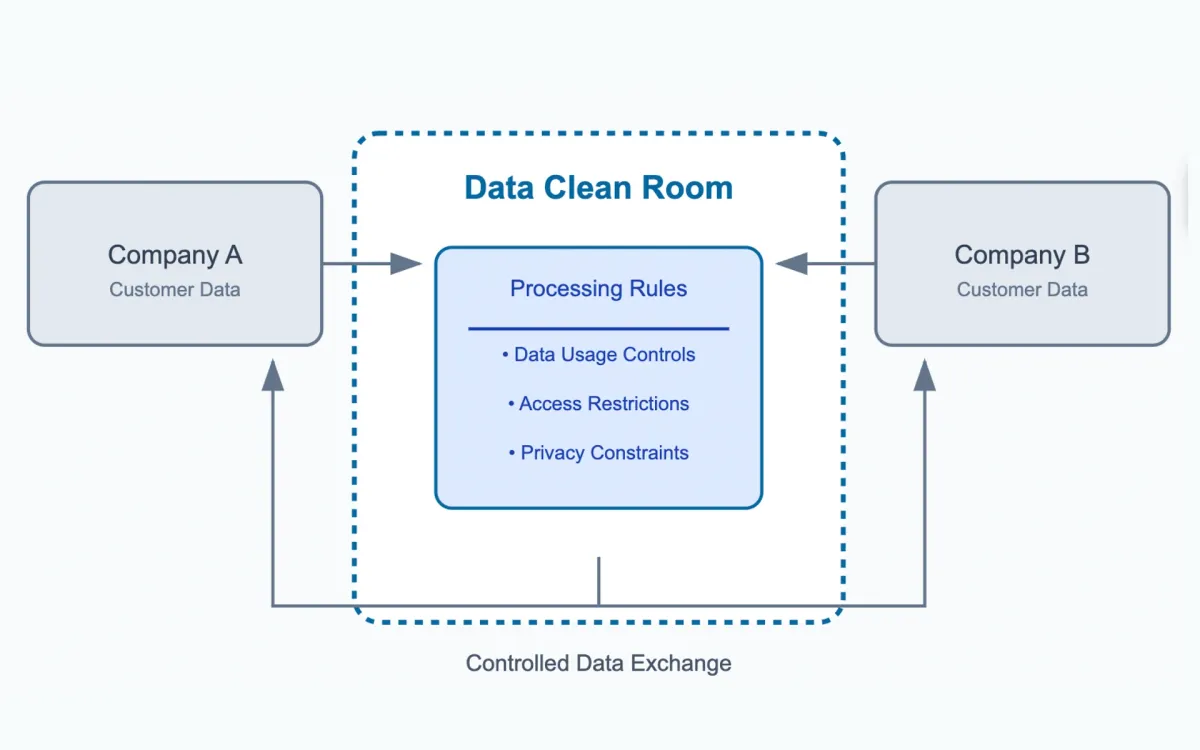
According to a Federal Trade Commission (FTC) blog post published on November 13, 2024, Data Clean Rooms (DCRs) are cloud data processing services that enable companies to exchange and analyze data under specific usage rules. The FTC warns that despite their name suggesting enhanced privacy, DCRs "are not rooms, do not clean data, and have complicated implications for user privacy."
As reported in the FTC's analysis, DCRs are typically employed when two companies want to share limited customer information. For example, a newspaper and grocery store might use a DCR to evaluate advertising effectiveness by identifying grocery sales made to newspaper subscribers.
The regulatory body emphasizes that by default, most DCR services are not privacy-preserving. According to the FTC's technical staff, while DCRs can add privacy protections in some cases, data disclosure through these systems can present the same privacy risks as other methods like tracking pixels.
 PPC LandLuís Rijo
PPC LandLuís Rijo
The FTC specifically warns companies against viewing DCRs as a way to circumvent legal obligations or promises made to consumers. The commission states that "unlawful disclosure or use of data is unlawful regardless of whether a DCR is involved."
Understanding the DCR Architecture
Cloud Processing Infrastructure
According to the FTC's technical documentation, DCRs function as cloud-based data processing services with specific architectural elements designed to control data exchange. The system operates through predefined rules that limit data usage between participating organizations.
Data Exchange Mechanisms
The FTC explains that what differentiates a DCR from standard data transfers are the "constraints" - rules limiting data analysis within the clean room and controlling what can be exported. These constraints must be "appropriately designed, implemented, and monitored" to effectively limit data usage and disclosure.
Security Vulnerabilities
The commission's technical analysis reveals that DCRs can add new avenues for data leaks and breaches. As stated in the FTC document, "Giving another system access to a dataset expands the perimeter that needs to be defended against attack and error."
Industry Impact
The FTC's scrutiny of DCRs comes amid a broader regulatory focus on privacy technologies. The commission references several historical cases demonstrating its enforcement approach:
According to the FTC, the agency has previously taken action against companies including:
- Henry Schein for promoting encryption despite using weaker algorithms than industry standards
- Zoom regarding promises of end-to-end encryption
- CafePress concerning claims about encrypting consumers' sensitive personal data
These cases establish a clear precedent for the FTC's current position on DCRs and privacy technologies generally. The commission emphasizes that technology-based privacy claims must be accurate and verifiable.
 PPC LandLuís Rijo
PPC LandLuís Rijo
Future Oversight
The FTC's analysis signals significant regulatory attention to DCR implementation and usage. The commission explicitly states it "remains vigilant in policing any unfair practices or deceptive claims about data collection, disclosure, sale, or use – regardless of the technologies employed."
This stance has immediate implications for companies utilizing or considering DCR implementations. The FTC emphasizes that using DCRs does not automatically prevent impermissible disclosure or use of consumer data.
The timing of this guidance, released in November 2024, suggests increased regulatory scrutiny of privacy-enhancing technologies and their marketing claims.
Key Facts
- Date of FTC announcement: November 13, 2024
- Primary technology: Data Clean Rooms (DCRs)
- Main concern: Privacy implications and company compliance
- Key warning: DCRs don't automatically ensure privacy protection
- Enforcement focus: Unfair practices and deceptive claims
- Affected parties: Companies exchanging consumer data
- Historical context: Previous enforcement actions against technology privacy claims
- Regulatory scope: Section 5 of the FTC Act
- Implementation requirement: Proper constraint design and monitoring

